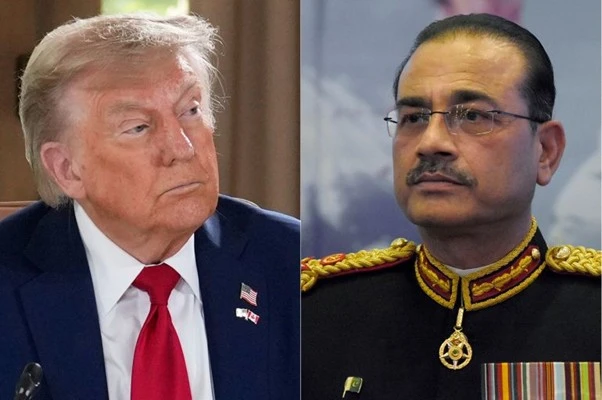Within the complex and often volatile geopolitical landscape of South Asia and the broader Islamic world, the Pakistan Army stands as an institution of unparalleled strategic significance and moral authority. Transcending its primary constitutional mandate as the guardian of Pakistan’s territorial integrity, it has evolved into a potent symbol of resilience, unity, and principled advocacy for the Muslim Ummah. Its unique position stems not merely from formidable military capability, but from a deeply ingrained ethos of sacrifice and an unwavering commitment to the ideals of justice and peace that resonate profoundly across Islamic nations.
This perception, forged through decades of confronting existential threats and steadfastly defending ideological and physical frontiers, elevates the Army beyond a national force to a pillar of stability within the Islamic world, a trusted voice advocating for regional calm and a more equitable international order.
The recent high-profile visit of Field Marshal Chief of Army Staff (COAS) Asim Munir to the United States serves as a compelling testament to Pakistan’s evolving and indispensable role as a regional stabilizer and a responsible international actor. This diplomatic engagement, occurring against a backdrop of intensifying global geopolitical friction and profound regional instability, underscored Pakistan’s agency in navigating complex power dynamics. Field Marshal Munir’s discussions with senior US political and military leadership were far from perfunctory; they represented a critical diplomatic fulcrum. The agenda explicitly addressed the precarious security environment exacerbated by persistent aggression from India, particularly concerning the disputed territory of Jammu and Kashmir, a perpetual flashpoint threatening regional conflagration.
Concurrently, the catastrophic humanitarian crisis unfolding in Gaza and the escalating tensions engulfing the Middle East formed a crucial corollary to these talks. In this context, the Pakistan Army, through its highest representative, forcefully articulated Pakistan’s unwavering resolve in safeguarding its own national security while simultaneously championing the fundamental rights to justice, self-determination, and peace for oppressed Muslim communities globally. This dual focus, national security and pan-Islamic advocacy – is intrinsic to the Army’s identity and its perceived role.
This visit crystallizes the Pakistan Army’s sophisticated approach to strategic diplomacy. It exemplifies a nuanced doctrine that meticulously balances uncompromising defence readiness and capability with demonstrable strategic restraint and a proactive pursuit of diplomatic solutions. The Army understands that true security in the 21st century is not achieved through isolation or belligerence alone, but through robust alliances, credible deterrence, and persistent dialogue. Field Marshal Munir’s mission was thus a deliberate exercise in safeguarding Pakistan’s core national interests, sovereignty, territorial integrity, and economic security, while simultaneously projecting Pakistan as a mature and indispensable partner in managing regional crises.
The emphasis was consistently on advocating for principles enshrined in the UN Charter: respect for national sovereignty, the inadmissibility of the acquisition of territory by force, the right to self-determination, and the imperative of peaceful dispute resolution. This principled stance resonates powerfully with partners across the Muslim world, who see in Pakistan a powerful voice articulating shared concerns and aspirations on the global stage, particularly concerning Palestine and Kashmir.
Field Marshal Munir’s engagement in Washington was neither ad hoc nor merely symbolic; it constituted a timely and deliberate strategic manoeuvre to reinforce Pakistan’s leadership credentials within the Islamic world and its critical role as a force for regional stability. During a perceived vacuum of moral leadership and the ascendancy of realpolitik often detrimental to smaller nations and Muslim causes, Pakistan, guided significantly by the strategic vision of its Army, is positioning itself as a consistent advocate for dialogue over discord, for international law over unilateralism, and for a just resolution of longstanding disputes.
The Army’s stature, derived from its operational effectiveness, its sacrifices in combating terrorism, and its unwavering commitment to the state’s ideology, provides the necessary gravitas for such advocacy. Its voice carries weight not just in Islamabad or Rawalpindi, but in capitals across the Middle East and within multilateral Islamic forums, where Pakistan is frequently looked upon to articulate a collective position grounded in both principle and pragmatism.
The Pakistan Army’s role as a pillar of stability, therefore, is multifaceted. Domestically, it remains the ultimate guarantor of the state’s continuity against both external aggression and internal subversion. Regionally, it acts as a crucial deterrent against adventurism, thereby preventing wider conflict. Within the Islamic world, it serves as a beacon of resilience, a professional military force capable of defending Muslim interests with dignity and strength, while consistently advocating for peace, justice, and the resolution of conflicts through dialogue and international law.
As geopolitical currents grow more turbulent and challenges to the Muslim world multiply, the strategic acumen, moral clarity, and unwavering resolve embodied by the Pakistan Army become increasingly vital. Field Marshal Munir’s visit to the US stands as a powerful reaffirmation of this reality: Pakistan, underpinned by the strength and vision of its Army, is not merely navigating global challenges but actively shaping the discourse towards a more stable and just regional and international order.
Recommendations for Consolidating Pakistan’s Stabilizing Role:
- Establish permanent, structured strategic dialogue frameworks with key global powers (US, China, Russia, EU) and pivotal Muslim nations (KSA, Turkiye, Iran, Egypt) focusing explicitly on regional security, counterterrorism, and conflict mediation.
- Proactively position CPEC and other regional connectivity initiatives as non-exclusive, stabilizing economic platforms, fostering trilateral cooperation (e.g., Pakistan-China-Afghanistan/Iran) to alleviate poverty, a root cause of instability, and build interdependencies.
- Support robust, government-backed but unofficial scholarly and expert exchanges focused on generating innovative, mutually acceptable frameworks for resolving the Jammu & Kashmir dispute, moving beyond stagnant official positions.
- Mobilize a coalition of influential Muslim states, leveraging the OIC platform, to exert concerted diplomatic and economic pressure for immediate, unimpeded humanitarian access and a credible path to a two-state solution in Palestine, demonstrating actionable Islamic solidarity.
- Significantly enhance training programs within military institutions focused on advanced peacekeeping operations, conflict mediation techniques, and post-conflict stabilization, positioning Pakistan as a primary contributor of skilled personnel for UN and Islamic peace initiatives.
“With faith, discipline and selfless devotion to duty, there is nothing worthwhile that you cannot achieve.” Muhammad Ali Jinnah, Founder of Pakistan








